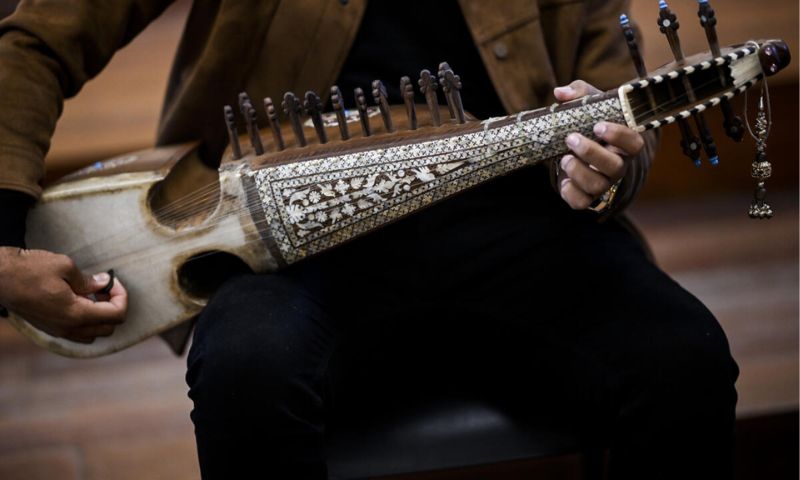ISLAMABAD/PORTUGAL: “We are here to save our music,” says Ramiz, a young Afghan musician who has been welcomed in Portugal with students from the national music school, which they left due to the cultural crackdown by the Taliban.
The 19-year-old Ramiz told AFP, “I hope that one day we can return to our country.” He was holding a rubab in his hands, a traditional stringed instrument.
He is one of the 58 students from the National Music Institute of Afghanistan (Anim), aged between 13 and 21, who have settled in the northern Portuguese cities of Guimaraes and Braga.
Ramiz landed in Lisbon with his teachers, classmates, and their families in December 2021, months after the Taliban took over power.
The 273 refugees left Afghanistan for fear of reprisals from the Taliban. They have banned non-religious music.
“When Taliban entered the gates of Kabul, it was clear that we should leave this place,” remember Anim director Ahmad Sarmast, who did everything possible to evacuate the staff and students of this music institute.
The 61-year-old said, “Afghanistan is a silent nation. When music in a country is banned, the whole nation is silenced.” Sarmast also lost some of his hearing in an attack by the Taliban in 2014 when they fought as rebels.
“It’s nothing short of a musical and cultural genocide,” added the Afghan music specialist, who has made it his mission to safeguard his country’s musical heritage and recreate the music school he founded in Afghanistan in 2010 in Portugal.
‘Each performance is a protest’
While waiting to find a suitable place where it could be re-established, his exiled team and students were welcomed at the Braga Music Conservatory, where they carried on playing music as a form of defiance.
Each of our school’s performances is a protest against what is happening in Afghanistan, according to Sarmast.
One of those musical protests took place earlier this month at a performance by renowned violinist Midori Goto, who was born in Japan.
The Taliban took over Afghanistan in August 2021, promising a more moderate version of their brutal 1996–2001 government, notorious for abusing human rights.
But they have pushed women out of practically all facets of public life, recently prohibiting them from attending public high schools and universities, working in the public sector, and going to parks and swimming pools.
Shogufa, a 19-year-old percussionist, is attempting to take advantage of the freedom her new life in Portugal offers while working with a fellow student in another area of the Braga conservatory.
The Beethoven enthusiast enjoys writing music, cooking, eating out, going to the gym, and playing sports with her pals. Shogufa is happy to have the opportunity to study every day in Portugal, even if women are not permitted to do so in Afghanistan.
The recollection of the musical instruments that the Taliban burned and destroyed in Kabul still traumatizes her. “My great dream is to go back to Afghanistan someday. Because the Taliban aren’t around forever, everything will be alright,” she said.
‘Our music is not dead’
Taking a break from his rubab practice, Ramiz is also optimistic and hopes to return to Afghanistan someday to show their music is not dead.”
But his mood darkens when he remembers his family back home. He hopes they will soon be able to join him in Portugal as “life is too dangerous for them in Afghanistan.” Ramiz speaks to his mother daily. He said, “One night if she didn’t listen to my voice, she won’t sleep.” Ramiz’s two brothers and father are also musicians.
Shogufa, who was in a dangerous situation for more than seven months in a former military hospital in Lisbon before traveling to Braga, is worried about the people she left behind, especially her six sisters and brothers. “All of them just stay home and have no plans.”


























